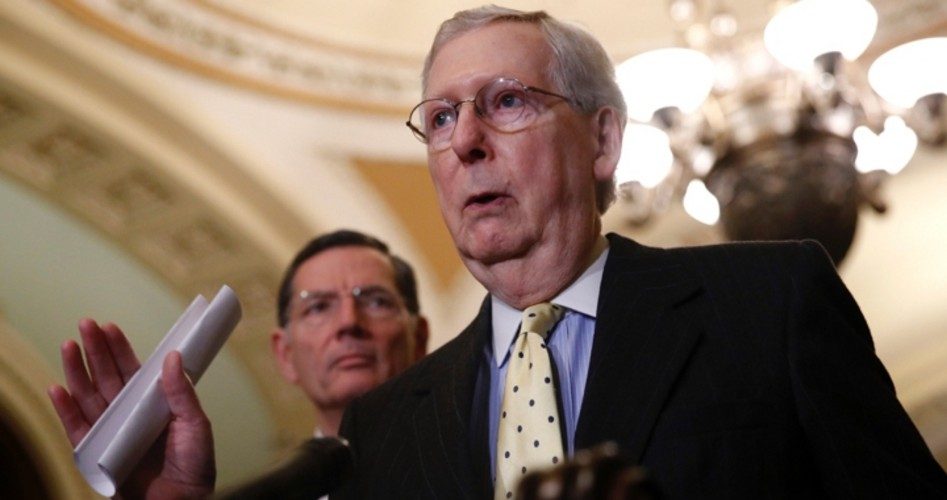
Speaking to reporters on April 2, Senate Majority Leader Mitch McConnell said that he has convinced President Trump that it is best to postpone any Senate action to “repeal and replace” the Affordable Care Act (ObamaCare) until after the 2020 elections.
“I made it clear to [the president] that we were not going to be doing that in the Senate,” McConnell told reporters.
“I wanted to delay it myself,” Trump said during a White House event the same day. “I want to put it after the election.”
Trump also predicted that he would win reelection in 2020 before tackling healthcare.
“We’re going to keep the presidency, and we’ll vote in the best health care package we’ve ever had,” he said.
An AP report noted that during their private discussions over the past few days, McConnell told the president that senators were agreeable to legislation that would address specific aspects of healthcare, most likely trying to lower prescription-drug prices. But completely scrapping ObamaCare and replacing it with a new, comprehensive healthcare bill simply would never get though Congress with Democrats running the House.
Finally, Trump told McConnell he “accepted” the political realities and “would be developing a plan that he would take to the American people during the 2020 campaign.”
AP observed that Trump’s apparent change of position made it clear that the healthcare debate will be left for voters to decide during the 2020 presidential and congressional elections.
The president tweeted late on April 1 that Congress will vote on a GOP plan after the elections “when Republicans hold the Senate & win back the House.”
An April 2 article in The New American observed that with Democrats now controlling the House of Representatives, the battle over the Affordable Care Act’s (ACA) future is largely being waged in the courts.
The article noted that officials from 20 Republican-controlled states have filed a lawsuit (The case is Texas v. Azar) contending that since (1) the Supreme Court found the ACA constitutional on the grounds that the individual-mandate penalty was an exercise of Congress’ taxing power and (2) that penalty has now been eliminated, the ACA must therefore be invalidated in its entirety.
The complaint notes that the Supreme Court, in 2012’s NFIB v. Sebelius, ruled that the individual mandate part of the ACA was unconstitutional, but that the penalty for noncompliance with the mandate was a tax, which falls within the constitutional powers of Congress. “Thus,” explains the complaint, “even though Congress sought to do something unconstitutional in enacting the mandate under the Commerce Clause, the Supreme Court salvaged its handiwork as a lawful exercise of the taxing power.”
However, last December, President Trump signed into law a tax-reform bill that repealed the individual-mandate penalty. “What remains, then, is the individual mandate, without any accompanying exercise of Congress’s taxing power, which the Supreme Court already held that Congress has no authority to enact,” reads the brief.
Photo: AP Images
Related articles:



